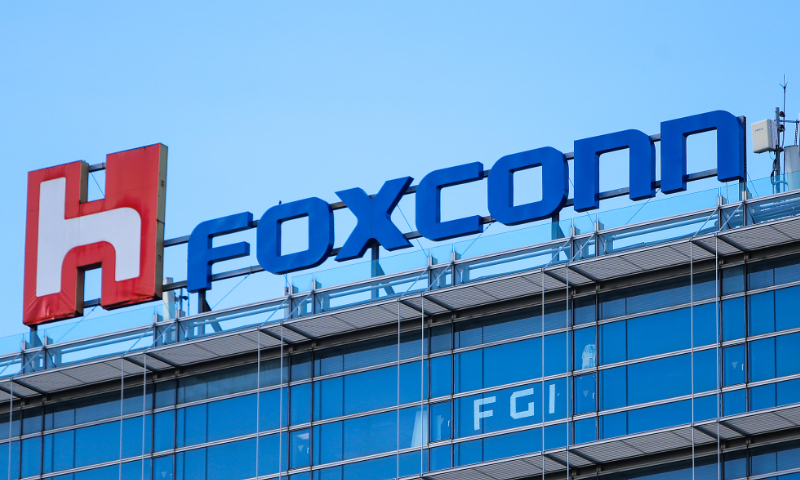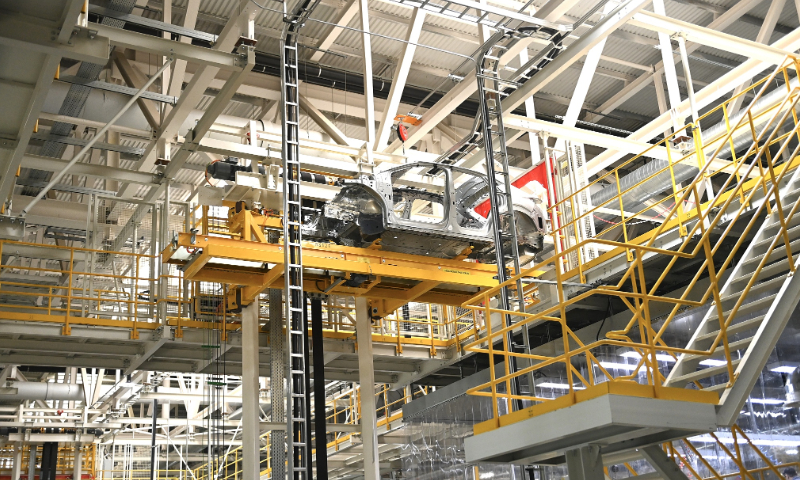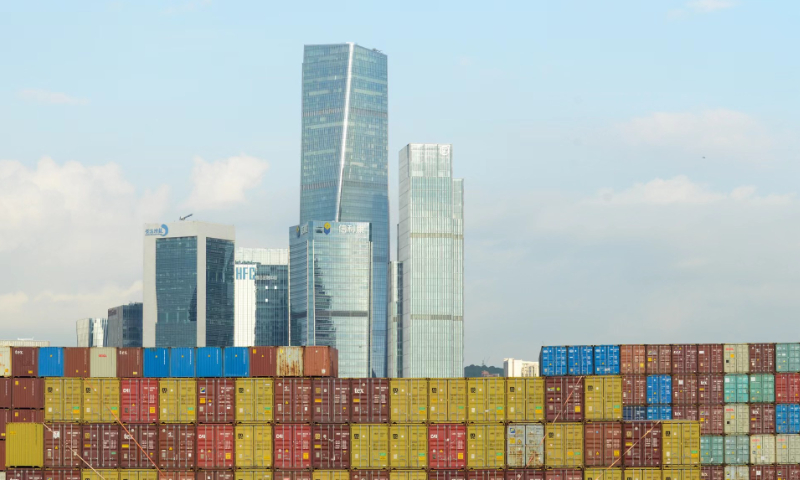
A view of a Mercedes-Benz factory in East China's Fujian Province. Photo: Courtesy of Mercedes-Benz
Mercedes-Benz Group on Wednesday said that it plans to invest more than 14 billion yuan ($1.97 billion) with local partners to enrich its localized portfolio of cars and vans, a move that further highlights its continuous confidence in China.
Chinese experts said that German companies, which "vote with their feet" by increasing investment in China to strengthen the industrial chain and supply chain, show recognition of the vitality and innovation strength of the Chinese market. Such moves are in stark contrast with the so-called "de-risking" approach advocated by some Western politicians.
From 2025, Mercedes-Benz will localize the all-new long-wheelbase electric CLA and an all-new long-wheelbase derivative of the GLE sport utility vehicle (SUV), as well as an all-new luxury electric van model based on the VAN.EA architecture.
The new long-wheelbase GLE SUV is for the first time being developed by the local research and development (R&D) team, with China-exclusive rear seat comfort and leading intelligent technology.
"The investment is a natural choice for us. Our China strategy is one of our main pillars of our overall global strategy," Ola Källenius, Mercedes-Benz Group AG's chairman, told the Global Times on Wednesday.
"The dynamism of this market, the pace of innovation, the transformation into new-energy vehicles makes China really kind of the next phase for us," he added.
The transformation of the strategic layout, advanced technological innovations, and latest blockbuster products will continue to be implemented in China at "China speed."
Data from Mercedes-Benz showed that from 2014 to 2023, the company, together with local partners, invested more than 100 billion yuan in China.
Mercedes-Benz is not alone. In April, BMW said that it planned to invest an additional 20 billion yuan in its Shenyang production base in North China's Liaoning Province, a clear sign of the premium carmaker's unwavering commitment to the Chinese market.
Given such investment, it is clear that the so-called "de-risking" approaches advocated by some Western politicians are the products of politicization, and such approaches are not in line with market principles and laws, Cui Hongjian, a professor at the Academy of Regional and Global Governance with Beijing Foreign Studies University, told the Global Times.
Giant German companies are more willing to continue to delve into the Chinese market, for they have been rooted here for many years, Cui added.
In the second quarter of this year, foreign direct investment from Germany into China reached 4.8 billion euros ($5.3 billion), nearly double the amount in the first quarter, bringing the first-half total to 7.3 billion euros, reported the Financial Times, citing data from Germany's central bank.




